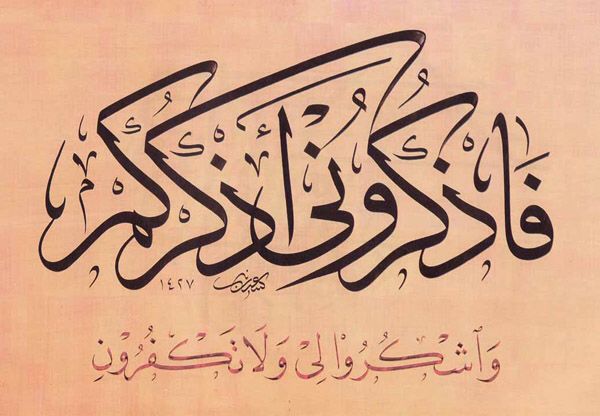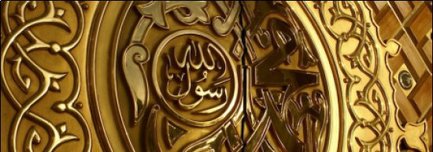“Be fearful of a day when you shall be returned to Allah, then every person shall be paid in full what he has earned, and they shall not be wronged.” Surah Baqarah
(This is the last verse to be revealed in the Qur’an)
The passing away of our most beloved and honourable Shaykh and Ustadh, the Ameer, the Master, the embodiment of Hadith, Shaykhul Hadith Hadhrat Mawlana Muhammad Yunus Saheb Jawnpuri (Allah sanctify his secret), was most definitely news that shook our hearts, rather shook mountains. Initially, I did not think it was befitting for me to write anything on Shaykh Saheb (Allah sanctify his secret), as many of my senior teachers and Ulama had already done so. But after reading them, a few anecdotes and memories came to mind so I decided to share them based on the Hadith:
Ibn Umar (Allah be pleased with him narrated that: The Messenger of Allah ﷺ said: “Mention good things about your dead, and refrain from (mentioning) their evil.” (Tirmidhi)
Alhumdu Lillah, in 2007 my late father sent me to Mazahirul Uloom, Sahanrapur in the khidmah of Shaykh Saheb (Allah sanctify his secret), as he felt it was good for an Alim to be in the company of a Shaykh after graduation for Islah and Tarbiyyah purposes. I had met Shaykh Saheb when he would come to Jamiatul Ilm Walhuda, Blackburn, for the Bukhari Jalsa and had heard many stories of his status and nature from my Ustadhs – many of which had studied under Shaykh Saheb’s tutelage.
When I first arrived, I introduced myself and passed on some money and gifts I had from our principal and ustadh Mufti AbdusSamad Saheb and Mufti Shabbir Saheb, as well as some of Shaykh Saheb’s previous students. I told him my father had sent me for his Khidmah and I was studying Ifta alongside this. I remember he asked me, if I was his guest (mehman) or a guest of the Darul Uloom. I said, “I am currently staying in the Mehman Khana until my room is arranged, so I shall eat from the Madrasah.” He said, “Very well! Otherwise I would arrange food for you.” To which I was quite overwhelmed and humbled, at Shaykh Saheb’s worry and concern.
In my first few days I imagined there would be dozens of people at his service and I would barely get a chance. As this was the case when he came to the UK, scores of Ulama from up and down the country would be following him “throughout” his stay in the UK. Things were quite different in India. Generally, it was some of the Bukhari/Ifta students that would do his Khidmah, but a very small amount. As they were in fear of being rebuked and told off. There were many days Shaykh Saheb (Allah sanctify his secret) would be alone or just one Khadim with him. I remember telling some of my Ifta colleagues, actually forcing them to come with me and sit with Shaykh Saheb (Allah sanctify his secret) for a while. They were very apprehensive. But I realised the cause behind this, it was what they were fed about Shaykh Saheb’s (Allah sanctify his secret) nature. Without doubt Shaykh Saheb (Allah sanctify his secret) was a person whose nature left you full of awe, he was “Jalali.” So generally, students were afraid of being told off and criticised. Shaykh Saheb would rebuke us. But he would always say, “I only discipline those with whom I have a connection, the person is fortunate who builds humility after I have disciplined him.”
I would like to mention a point here for ulama, we should never think of ourselves too high that we cannot be criticised. Fudhayl ibn Iyadh (Allah have mercy upon him) once said, “Accept the truth, even if it is from a child.”
I remember Shaykh Saheb (Allah sanctify his secret) would start the day off with Surah Yaseen and also read Qur’an after Dhuhr Salah. He would say, “I like to start the day off with Qur’an.” There was a particular Durood he would read after recitation of the Qur’an, I tried to pick up the words as Shaykh Saheb would whisper it quite loud. I only ever heard, “Allahumma Salle Alaa Muhammad bi Addadi Kulli Harf…” (O Allah! Send salutations upon Muhammad equal to every letter I have read from the Quran). If anyone knows the full Durood, I would be grateful if they could share it In Sha Allah.
I was once told to fetch some water by Shaykh Saheb (Allah sanctify his secret), I knew in India they did not drink from the tap like we do in UK. But as it was my first few weeks, I was unaware where Shaykh Saheb (Allah sanctify his secret) drank from. Usually, people stored their water in a clay pot (matka) or something similar. So, I was running around in the kitchen and in the bedroom looking for his water storage. I ended up downstairs and I saw a student pumping water out from the Madrasah pump and I told him, Shaykh Saheb has asked for water. He said, Shaykh Saheb doesn’t drink this water and he only drinks Zam Zam. Subhan Allah! He rushed me back to the room and under the bed were drums of Zam Zam. I was grateful to him for sharing this with me as I didn’t want to feed Shaykh Saheb with normal water, when he only drank Zam Zam.
Shaykh Saheb (Allah sanctify his secret) did not like pretence and deception. Once a few students were sat and one of the students had a white scarf/shaal, like the ones we see in Saudi Arabia worn by their Imams. This student was sat in front of Shaykh Saheb (Allah sanctify his secret) whilst Shaykh Saheb was doing Dhikr. All of a sudden, Shaykh Saheb (Allah sanctify his secret) got really angry and said, “Oh! It’s only you… I thought you were a big Alim, the way you are dressed.” He ordered him to remove it and told us always to dress humbly.
Shaykh Saheb (Allah sanctify his secret) would cry at times, when putting on Itr before his dars. He would say, “These bottles are worth thousands of Rupees each. But when I was young I didn’t have enough money for food. Dear children, I went through a lot of poverty.” Tears would roll from his eyes, rahimahullah.
Further he would say many times, his father was a teacher and as a boy Shaykh Saheb was quite weak mentally and physically. He would always remain ill. A man suggested to his father, “Get him on the (cycle) rickshaws, as he will be of no use to you when he grows up. At least this way he will bring money in!” “Alhumdu Lillah! When I sit on the (cycle) rickshaws, the thought crosses my mind. It could have been the other way round!” Shaykh Saheb would say very emotionally.
“That is Allah’s grace which He bestows on whom He wills, He is the Owner of Mighty Grace.” (62:4)
NB: In Saharanpur there was little use of the motor rickshaws, a man would sit at the front and peddle. Passengers would sit at the back in a carriage. I don’t know if things have advanced.
Here I would like to clarify something which I heard from many students and teachers at my time in Saharanpur, that Shaykh Saheb was diagnosed with Tuberculosis at a young age. And TB was such in those days, if you caught it, chances were that you would die imminently. As a result of this Shaykh Saheb (Allah sanctify his secret) did not marry, due to fear of death occurring at any time. But time went by, he graduated as an Alim and even started teaching. He was always on edge, that he could go any minute. Like this he passed his whole youth, but one night he saw the number 5 in a dream (whether it was the figure 5 or a hand indicating 5 I cannot remember). This really confused Shaykh Saheb (Allah sanctify his secret). He thought, “Maybe it means 5 days or 5 months, I have left to live!” Later, when Shaykh Saheb (Allah sanctify his secret) started teaching and came across the ‘maghaib khamsah’, the knowledge of five things which only Allah SWT knows. He understood the interpretation of the dream, which meant stop worrying about your death, only He SWT knows when you will die. The five things being, “Qiyamah, rainfall, what is in the womb – male/female, what a person earns – rizq, when a person will die.” (Surah Luqman)
This does not defy the fact that Shaykh Saheb (Allah sanctify his secret) had immense love for knowledge and his books, it would even be correct to say he was married to his books.
A similar incident is related regarding Imam Malik (Allah have mercy upon him) and the dream of the number 5.
Shaykh Saheb (Allah sanctify his secret) was connected to Ulama all over the UK and all over the world, he would often get calls of halaat/circumstances in certain countries. Especially, internal conflicts. As he knew I was from UK he once said, “When you return to the UK never get involved with Ikhtilaf/politics, as this is increasing in England.”
Shaykh Saheb (Allah sanctify his secret) was very wary when he was eating, with regards to evil eye (nazar). More often than not, he would prefer to eat alone and not in the sight of students or even guests from outside.
I remember asking Shaykh Saheb (Allah sanctify his secret) a few questions that had always been on my mind. The first was the Sunnah method of clipping the nails, as many books show a method which they refer to as Sunnah. He replied, “This is not in Hadith, but rather we begin from the right hand as this is preferable in all matters. Secondly, we begin from the Shahadah finger (index) as it is good to start with this finger.” I also asked about walking forty steps after food, He said, “This is only recommended by Hakims, it is not Sunnah.”
Approximately, half a million people attended Shaykh Saheb’s Janazah Salah:
Aishah (Allah be pleased with her) said: “The Prophet (peace and blessings be upon him) said, ‘If a Muslim dies and his funeral prayer is attended by a group of a hundred Muslims, and they all sincerely pray for his forgiveness, he is forgiven’”. (Ahmad, Muslim, and Tirmidhi)
Lastly, when Shaykh Saheb (Allah sanctify his secret) came to Jamiatul Ilm Walhuda in May 2017 for the Bukhari ceremony, towards the end I remember him saying, “O children! It is possible that I do not return next year.” And such was Allah’s wish…
“The Eyes Tear,
The Heart is in Pain,
But (with my tongue) I will only say that which is pleasing to Allah,
And we are indeed sad at your departure. ”
(Bukhari)
The Prophet (peace and blessings be upon him) on the death of his son Ibraheem (Allah be pleased with him)
May Allah SWT elevate the status of Shaykh Saheb and Allah reward him on behalf of the whole Ummah and may his legacy remain in this world until the day of Qiyamah and Allah SWT grant us all the tawfeeq to follow in the footsteps of all the pious personalities and He resurrects us amongst them on the day of Qiyamah and He grant us a place in Jannah with such luminaries and pious Mashayikh… Ameen!
One request, please make Esaal-e-Thawab for Hadhrat of whatever you are able to and as much as you can; Qur’an, Dua, or Sadaqah. (I am hoping to build a Masjid in Shaykh’s name – please see link below and kindly donate).
https://www.justgiving.com/fundraising/ismail-satia1
Ismail ibn Nazir Satia (One who is in dire need of Allah’s forgiveness, mercy and pleasure).
26th Dhul Qa’dah 1438



 I have a question regarding the text Faza’il – e – A’maal by
I have a question regarding the text Faza’il – e – A’maal by Assalamu alaykum
Assalamu alaykum
 Ponder over the following examples where very few words unlocked the greatness of three great people.
Ponder over the following examples where very few words unlocked the greatness of three great people.



